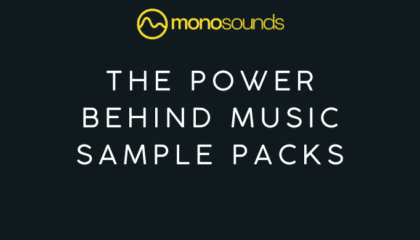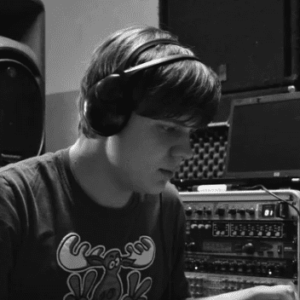
Title: Music Trends 2025: What’s Blowing Up on TikTok and…

Hip hop music has been one of the most popular and prevalent genres around the world for decades. From the old school beats of Grandmaster Flash to the modern-day bangers of Kendrick Lamar, hip hop music has evolved and grown with time. But have you ever wondered what sets apart a great hip hop track from a mediocre one? While talent, creativity, and skill play a significant role, the use of high-quality hip hop sample packs in production is equally important.
As a music producer or beatmaker, you’re constantly looking for fresh sounds and inspiration. With countless sample packs available over the internet, it can be overwhelming to choose the right ones that fit your style and creative needs. But fret not, because we’ve got you covered! Our ultimate guide to hip hop sample packs features a handpicked selection of the best packs, curated to cater to all skill levels and preferences.
Whether you’re a seasoned producer or just starting, our guide will help you unleash your inner beatmaker and elevate your production game. So, are you ready to take your hip hop production to the next level? Let’s dive in and explore the endless possibilities of hip hop sample packs!
Hip hop sample packs are collections of audio samples, loops, and one-shots specifically designed for hip hop music production. These packs contain a wide range of sounds, including drum loops, basslines, melodies, vocal chops, and more. They are created by professional sound designers and producers who have carefully curated and organized these samples to make them easily accessible and usable in music production software.
The beauty of hip hop sample packs lies in their versatility. They provide producers with a vast library of sounds that can be manipulated, chopped, and rearranged to create unique beats and melodies. Whether you’re looking for gritty boom-bap drums, soulful vinyl samples, or futuristic synth loops, hip hop sample packs have got you covered.
Using sample packs in your productions can save you a significant amount of time and effort, as you won’t have to create every sound from scratch. Instead, you can focus on arranging and mixing these pre-made elements to create your own signature sound. Sample packs are a valuable resource for both beginners and experienced producers, offering endless possibilities for creativity and experimentation.
1. Time-saving: One of the biggest advantages of using hip hop sample packs is the time saved in sound design. Instead of spending hours crafting each sound individually, you can quickly browse through the sample packs and find the perfect elements to fit your track. This allows you to focus on the arrangement and overall production, leading to faster workflow and increased productivity.
2. Inspiration and creativity: Sample packs are not only a collection of sounds but also a source of inspiration. They can spark ideas and help you overcome creative blocks by providing fresh and unique sounds to work with. The variety of samples in a pack allows you to experiment with different styles and genres, pushing the boundaries of your creativity and enabling you to explore new sonic territories.
3. Professional sound quality: Sample packs are created by industry professionals who have years of experience in sound design and music production. This ensures that the samples you use in your tracks are of the highest quality and meet industry standards. By using professionally crafted sounds, you can elevate the overall production value of your tracks and compete with other professional releases.
4. Consistency and cohesiveness: Sample packs often have a cohesive theme or style, making it easier to create tracks that sound consistent and well-structured. Instead of using random samples from different sources, sample packs provide a curated selection of sounds that are designed to work together harmoniously. This cohesiveness helps you create tracks that flow seamlessly and have a unified sonic identity.
5. Expand your sonic palette: By using hip hop sample packs, you can explore new sounds and genres that you may not have been exposed to before. Sample packs often contain elements from a wide range of musical styles, allowing you to experiment and incorporate new sounds into your productions. This expands your sonic palette and enables you to create unique and interesting tracks that stand out from the crowd.
Hip hop sample packs come in various types and styles, catering to different preferences and production needs. Here are some common types of hip hop sample packs you can find:
1. Drum kits: Drum kits are essential for any hip hop producer. These packs contain a wide range of drum samples, including kicks, snares, hi-hats, claps, and percussion sounds. Drum kits come in different flavors, such as classic boom-bap, trap, lo-fi, and more. They provide the foundation and groove for your tracks, allowing you to create hard-hitting beats and infectious rhythms.
2. Melody and chord loops: Melody and chord loops are pre-recorded musical phrases that can be used as the main musical element in your tracks. These loops often include catchy melodies, chord progressions, and atmospheric textures. They are great for adding depth and emotion to your productions, especially if you’re not a proficient keyboard player or lack access to live instruments.
3. Basslines: Basslines are an integral part of hip hop music, providing the low-end foundation and groove. Bassline sample packs contain a variety of bass sounds, ranging from deep sub-basses to funky and melodic basslines. These samples can be used as is or manipulated to fit your track’s style and vibe.
4. Vocal chops and phrases: Vocal chops and phrases are snippets of pre-recorded vocals that can be chopped, rearranged, and manipulated to create unique vocal melodies or hooks. These samples add a human touch to your tracks and can be used in various ways, from creating catchy vocal hooks to adding atmospheric textures.
5. FX and sound effects: FX and sound effects sample packs contain a wide range of sound design elements, including risers, sweeps, impacts, transitions, and more. These samples are great for adding tension, energy, and movement to your tracks. They can be used to create seamless transitions between sections, build-ups, and breakdowns.
As a music producer or beatmaker, you don’t always have to break the bank to get access to high-quality hip hop sample packs. There are several sources where you can find free sample packs that are both legal and of excellent quality. Here are a few:
1. Sample pack websites: Many websites offer free sample packs, including dedicated hip hop sample pack websites. These websites often have a section dedicated to free packs, where you can find a wide range of samples to download. Some popular sample pack websites include Splice, Loopmasters, and Sample Magic.
2. Producer communities and forums: Online producer communities and forums are a great resource for finding free hip hop sample packs. These communities often have a sharing culture, where producers exchange samples, loops, and presets. Websites like Reddit’s r/Drumkits and r/FreeSounds are popular destinations for finding free sample packs.
3. SoundCloud and YouTube: SoundCloud and YouTube are not only platforms for discovering new music but also for finding free hip hop sample packs. Many producers and sound designers share their sample packs on these platforms as a way to promote their work. You can find sample packs by searching for keywords like “free hip hop sample packs” or by following producers who regularly share free samples.
4. Social media groups and pages: Many producers and beatmakers have dedicated social media groups and pages where they share free sample packs. Platforms like Facebook, Instagram, and Twitter are great for discovering these groups and pages. Following producers and joining relevant groups can help you stay updated with the latest free sample pack releases.
Using hip hop sample packs effectively requires a combination of technical skills and creative thinking. Here are some tips to help you make the most out of your sample packs:
1. Organize your sample library: Before you start using sample packs, it’s essential to have a well-organized sample library. Create folders and subfolders for different types of samples, such as drums, melodies, vocals, and FX. This will make it easier to find the right sounds when you need them, saving you time and streamlining your workflow.
2. Experiment with chopping and layering: One of the advantages of using sample packs is the ability to chop and manipulate the samples to create unique sounds. Experiment with different chopping techniques, such as slicing, time-stretching, and reversing, to create interesting variations of the original samples. Layering multiple samples together can also add depth and complexity to your tracks.
3. Add your personal touch: While sample packs provide a great starting point, it’s essential to add your personal touch to make your tracks stand out. Use effects like EQ, compression, and reverb to shape the samples and make them fit seamlessly into your mix. Experiment with different processing techniques and effects chains to create your own unique sound.
4. Combine samples with original recordings: Don’t limit yourself to using only samples from sample packs. Incorporate original recordings and live instruments into your tracks to add a human touch and create a more organic sound. Record your own vocals, play live instruments, or sample your own sounds to add a personal and unique flavor to your productions.
5. Stay up to date with new sample pack releases: The world of sample packs is constantly evolving, with new releases and updates happening regularly. Stay up to date with the latest releases from your favorite sample pack providers and subscribe to their newsletters or follow them on social media. This will ensure that you have access to the newest sounds and stay ahead of the curve in your productions.
1. Layer and stack drum samples: To create unique and punchy drum patterns, try layering and stacking different drum samples from your sample packs. Combine kick drums, snares, and percussion elements to create complex and interesting rhythms. Experiment with different combinations and processing techniques to find the perfect blend that suits your track.
2. Chop and rearrange melodies: Melody loops in sample packs can be a great starting point, but don’t be afraid to chop and rearrange them to create something new. Use your DAW’s slicing tools or manually chop the melodies into smaller segments. Rearrange these segments to create your own unique melodies and progressions. Adding effects like pitch-shifting and time-stretching can further transform the original melodies into something entirely different.
3. Experiment with different sample combinations: Sample packs often contain a wide variety of sounds, so don’t limit yourself to using only one pack. Try combining samples from different packs to create unique sonic combinations. For example, you can use a drum loop from one pack, a bassline from another, and a vocal chop from a third pack. This mixing and matching of samples can result in unexpected and exciting combinations that set your beats apart from others.
4. Add your own effects and processing: While sample packs often come with pre-processed sounds, don’t be afraid to add your own effects and processing to make them fit your track. Experiment with EQ, compression, saturation, and other effects to shape the samples and make them blend seamlessly into your mix. Adding your own effects can also help create a more cohesive and unique sonic identity for your beats.
5. Experiment with different genres: Don’t limit yourself to using hip hop sample packs exclusively for hip hop production. Sample packs from other genres, such as electronic, soul, funk, or jazz, can provide fresh and unique sounds that can be incorporated into your beats. Experiment with different genres and styles to create a fusion of sounds that represents your unique artistic vision.
1. Classic boom-bap: If you’re into the classic boom-bap sound, check out sample packs like “Boom Bap Essentials” by The Drum Broker or “Golden Era Hip Hop” by MSXII Sound Design. These packs contain authentic drum breaks, dusty vinyl samples, and soulful melodies that pay homage to the golden era of hip hop.
2. Trap: For trap producers, sample packs like “Ice Gold” by Monosounds” or “Titanium” are essential. These packs feature hard-hitting 808s, crisp hi-hats, and dark synth melodies that are synonymous with the trap sound.
3. Lo-fi: If you’re a fan of the lo-fi hip hop aesthetic, sample packs like “Melancholic LoFi” by MS or “Faded Memories” are perfect for you. These packs include vinyl crackles, dusty pianos, mellow melodies, and soulful vocal chops that capture the nostalgic and laid-back vibe of lo-fi hip hop.
4. Experimental: For producers looking for more experimental and avant-garde sounds, sample packs like “Organica” is worth exploring. This pack feature glitchy drums, abstract textures, and unconventional sound design elements that push the boundaries of traditional hip hop production.
5. Modern and mainstream: If you’re aiming for a more modern and mainstream sound, sample packs like “KRADE” by Monosounds or “Ultimate Trap & Drill Bundle” by Monosounds.studio are great choices. These packs contain radio-ready drum samples, catchy melodies, and polished production elements that are commonly heard in today’s popular hip hop tracks.
Downloading and installing hip hop sample packs is a straightforward process. Here’s a general guide to help you get started:
1. Find a sample pack: Choose a sample pack that fits your style and production needs. You can find sample packs from various sources, such as sample pack websites, producer communities, or social media groups.
2. Download the sample pack: Most sample packs are available as downloadable ZIP files. Click the download link provided by the source and save the ZIP file to your computer.
3. Extract the ZIP file: Once the ZIP file is downloaded, extract its contents using software like WinRAR or 7-Zip. This will create a folder containing the samples and other accompanying files.
4. Copy the samples to your sample library: Locate your sample library folder on your computer. This folder is usually set up by your music production software or can be manually created. Copy the samples from the extracted folder and paste them into your sample library

Title: Music Trends 2025: What’s Blowing Up on TikTok and…

Introduction Hey there, it’s Maxim Hetman — sound designer, mixing…

Title: Why Custom Serum Presets Beat Stock Sounds Every Time:…

So, you’ve been inspired by the insane soundscapes of Flume…
